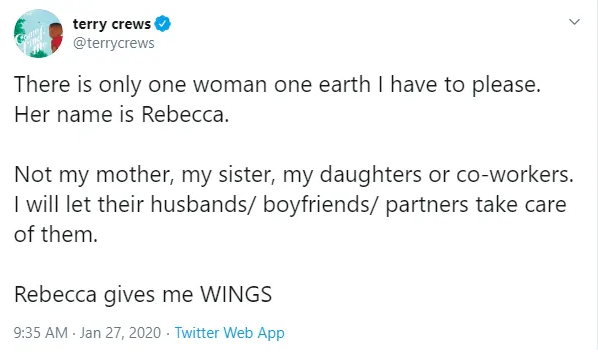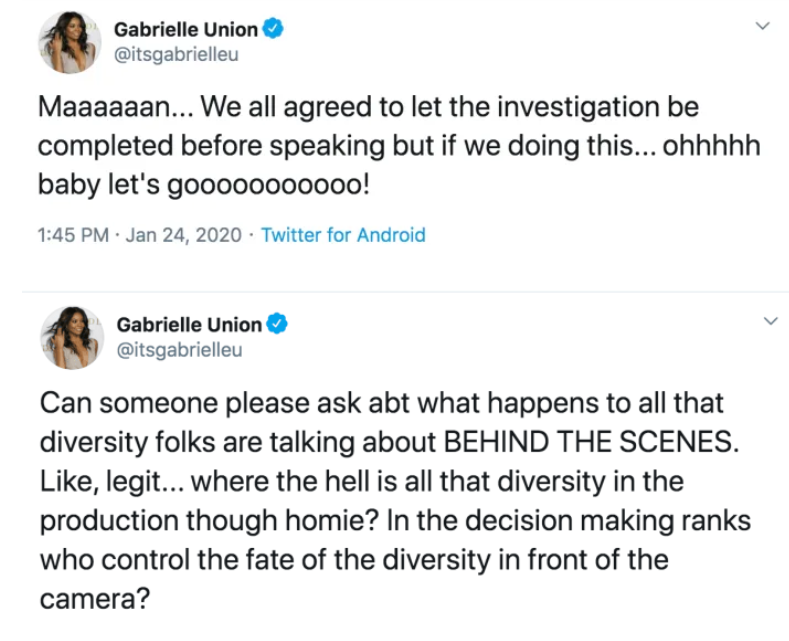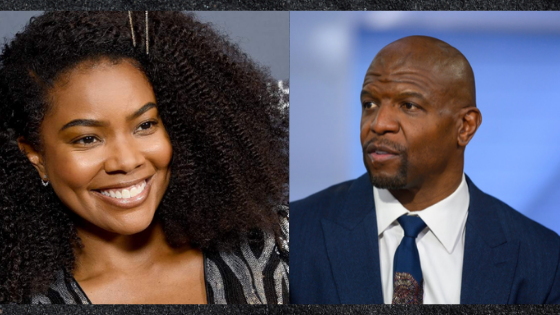Historically black men have been at the center of socio-political and socio-cultural movements and discussions of black personhood
I so desperately wanted to believe that Terry Crews’ Twitter was hacked in January, following an interview he did dismissing Americas Got Talent (AGT) having a toxic work culture that is steeped in racism, sexism and the like, which was brought to light by Gabrielle Union. Terry was asked on the Today show, if he felt the same as Gabrielle and the guy got on there and became a “true enemy of progress”. I’m pretty sure that most black women were *screw faced* and then many of us like myself, were like “Of course. On brand,” per usual of a lot of black men and patriarchy. Gabrielle responded via a series of tweets and clapped back and was understandably irate.
Following his interview, Twitter and the interwebs got right to it, and reminded him of the support Gabrielle Union and other black women showed him during his personal accusations of sexual assault and harassment by a showbiz executive. Just when you thought it was over, Terry again pretty much tweets and says, he owes no one any type of explanation or protection other than his wife, not even his mama or his daughters. Oh, and it still wasn’t over. I just don’t have the time or energy to continue to share the foolishness. The funniest part was Gabrielle’s husband Dwayne Wade tweeting for someone to take away Terry’s phone. Eventually Terry did apologize. Take that however you would like.


Terry Crews’ antics are almost textbook displays of patriarchy at work. This is the kind of thing that countless African and Black women writers and scholars have discussed for decades. More specifically, the outright denouncing of a black woman’s claims of sexism and racism in the workplace is a direct example of how black women have been screaming to the high heavens of the lack of concern, support and protection that many black men have for black women. The most glaring part about this is the level in which black women really came to his side to humanize his encounter with sexual assault, an issue that is often unspoken about when it comes to the experiences of boys and men, especially black men.
The comments he made about only having to answer to his wife and protect his wife and nobody else, and let me reiterate, not even his mama and daughters, is also a testament to the ways in which despite sticking their necks out for black men and the black community at large, black women such as Gabrielle, having a full life, career and a family of her own to care for, do not hesitate to call-out injustices. In the mind of most women, to our own detriment we do not think about the protection of ourselves first, but we will more often than not bodyguard and shield those we see in distress. Is it a result of our anatomic makeup and the ability to birth and rear children, or is it the level of consciousness that women in general have in the upholding of culture and the functioning of society. All are probably true.
This is not to say that patriarchy and misogyny are only found in African and Black culture because that is a complete farce. These social and gender dynamics are present in every culture and groups of people, but still it just seems as though we always have more at stake and more to lose.
The reality is this, black men benefit from white hegemonic masculinity and patriarchy, specifically in how black men align themselves with capitalism and predominantly white male power structures. Terry Crews demonstrated his adjacency to these power structures in that interview. I would not be surprised if there was some level of monetary gain or allowance that prompted Terry Crews to speak about Gabrielle’s claims the way he did, when he actually did not have to say anything at all or maybe he just simply wants to keep his job. This does not mean nor does it negate the fact that black men do not experience racial and structural bias and discrimination because we all know they do, but what it does showcase is how patriarchal social conventions continuously undermine black womanhood.
Historically black men have been at the center of socio-political and socio-cultural movements and discussions of black personhood and with this centering, mostly of their own doing; it can and has created an extremely challenging existence for black women. Terry coming out and speaking on these issues, also impacts other people and women who work at AGT or similar work spaces, to come forward, if they do in fact experience discrimination.
Is it the responsibility of every black person to protect black people, black men or black women? No, but it does kind of sting every time it is very loudly shown that many black men do not feel the same amount of urgency to defend black women, the same way black women do towards them. Terry’s responsibility and loyalty will always be to himself, his wife and his family and that shouldn’t have to change. Did Terry Crews gain more visibility from aligning with the #MeToo movement? Yes. Do I believe he experienced sexual assault? Yes, I do. The challenge and question is really how do we shift and change the way black men engage and come to understand the gendered experiences of black women?
It’s so important that black men begin and for those who already are, continue to elevate their consciousness on the dangers and harm of patriarchy and misogynoir.
Because the thing is, if your existence as a black man is not firstly grounded in the knowledge of your cultural heritage, then it will be hard to even begin to understand how the same forces that hinder and impede your existence also do the same to black women. The difference here is that, our struggle is ignored and invisible to society.
Whew. I want off this ride.

